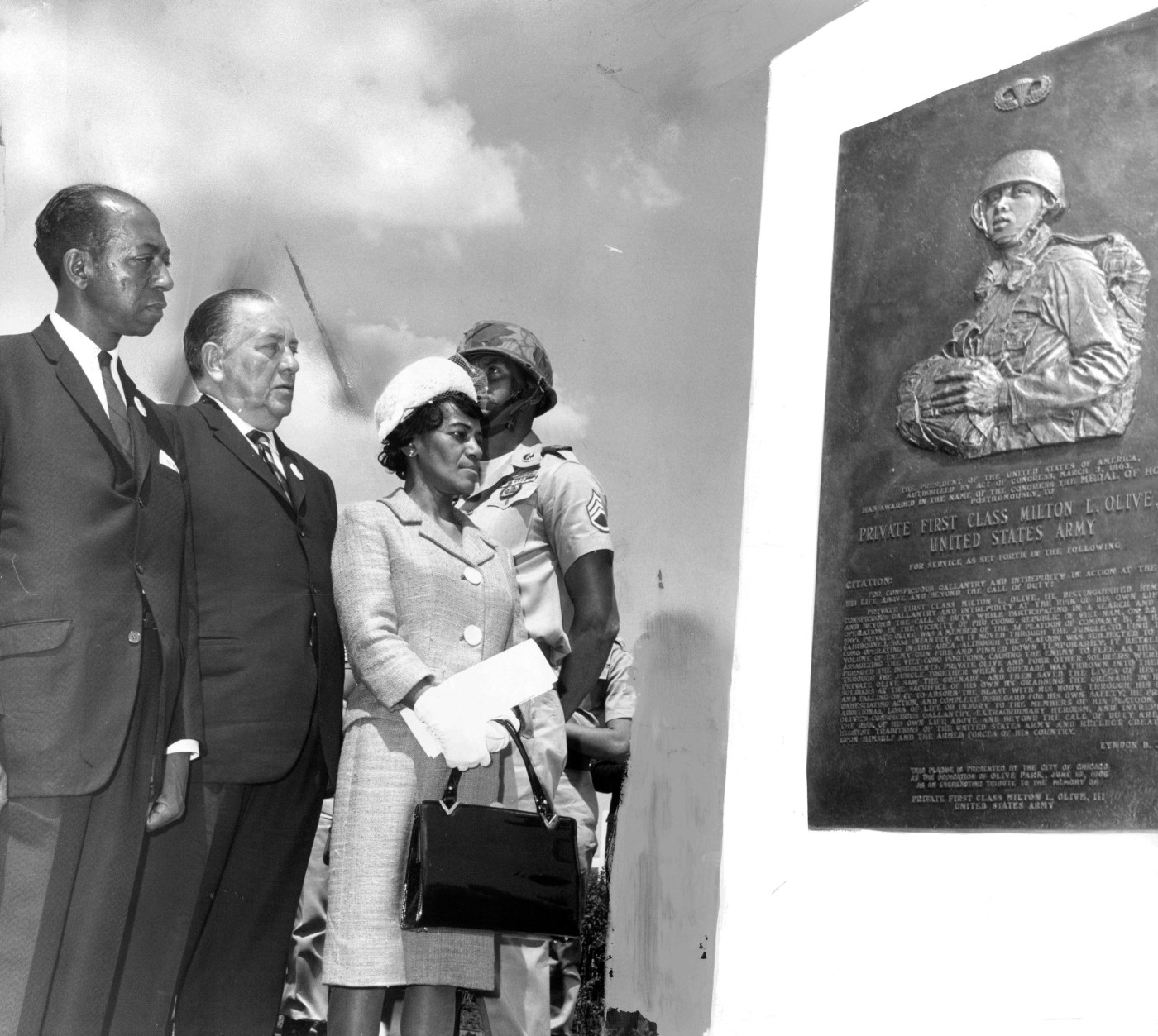Secretary of Defense Pete Hegseth recently ordered the cancellation of official observances for “cultural awareness” months within the U.S. military. This directive has sparked concerns about its implications for the legacy of notable figures in American history, particularly that of Milton Olive III, the first Black American soldier awarded the Medal of Honor for his service in the Vietnam War.
Milton Olive earned this prestigious recognition posthumously for his extraordinary bravery on October 22, 1965. At just 18 years old, Olive sacrificed his life to save his comrades during a firefight near Saigon. While pursuing a group of Viet Cong fighters, an enemy grenade was thrown into their midst. In a selfless act, Private First Class Olive grabbed the grenade and fell on it, absorbing the blast and saving the lives of his fellow soldiers. His citation highlights that his actions reflected “great credit upon himself and the Armed Forces of his country.”
President Lyndon B. Johnson presented the Medal of Honor to Olive’s family on April 21, 1966, and later that year, a monument was unveiled in his honor at Olive Park in Chicago. This site has served as a reminder of his sacrifice, a narrative that resonated deeply within the community, including in the 1960s when the Vietnam War was still a pressing issue.
As discussions about military culture intensify, the decision to eliminate observances such as Black History Month, Women’s History Month, Pride Month, and National Hispanic Heritage Month raises significant questions about the acknowledgment of diverse contributions to American history. Investigative reporter Sig Christenson of the San Antonio Express-News noted a lack of clear rationale from the Department of Defense regarding these cancellations, particularly in contrast to the continued recognition of events like St. Patrick’s Day.
The implications of Hegseth’s directive extend to the erasure of vital historical figures from military narratives. The Department of Defense reportedly removed mentions of minority heroes, including the Tuskegee Airmen and the Navajo Code Talkers, from its official website. This move is perceived as part of a broader campaign against “woke” culture, which critics argue undermines the contributions of those from diverse backgrounds who have fought for American freedoms.
Advocates for military diversity, such as veteran C. Douglas Sterner, are raising awareness about the significance of remembering and documenting the stories of historically marginalized heroes. Sterner, who has authored numerous books on military honors and operates the Home of Heroes website, expressed his dismay at the Department of Defense’s actions. He has collaborated on a new book titled “Beyond Woke: The Diversity of U.S. Military Heroes,” which aims to highlight the stories of individuals like Milton Olive and ensure their legacies are preserved.
The ongoing debate over the recognition of diverse contributions within the military reflects broader societal discussions about identity and inclusion. As the U.S. grapples with its historical narratives, the importance of honoring all its heroes, regardless of their backgrounds, remains paramount. The legacy of figures like Milton Olive serves as a reminder of the values of courage and sacrifice, which transcend cultural differences and deserve to be celebrated.
